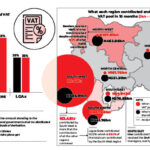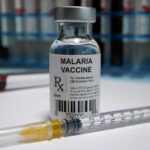The development of good quality human resources and utilisation of their potential ensures the development of a nation. Therefore, the Human Development Index (HDI) emphasises that people and their capabilities are the key criteria to assess the development of a country, not alone GNP/capita. An upper trend of HDI ensures that the fruits of economic growth are reaching the common citizenry, instead of being parked in a few pockets. If two countries with the same level of GNI/capita, end up with different HDI, it indicates either wrong policy choices or its implementation by the government of the nation.
HDI consists of a long and healthy life, being knowledgeable and having a decent standard of living. It is the geometric mean of normalised indices for each of these three dimensions. A careful look at these three variables boils down to the sense of a commoner as to the availability of the quality of education, health, and living enjoyed by the citizens of a nation, which then cuts into a good figure in the index. If the value is closer to 1.0 on the index, the better its standing in regard to human development. In the year 2022, Nigeria has an HDI of 0.534, indicating somewhere in the middle in a global scenario.
- Fuel scarcity hits airlines as passengers suffer delays, cancellations
- Zamfara gov launches cash transfer to widows, orphans, others
Unfortunately, Nigeria is the home of the global highest number of kids (at least 10.5 million) out of formal schooling. One in five out-of-school children in the world is Nigerian. This grim situation has been acknowledged by the federal government which has pledged to increase Nigeria’s annual domestic education expenditure by 50 per cent over the next two years and by 100 per cent by 2025. This increase will reach 7.2% of the allocation of the national budget; though the internationally expected benchmark of spending in education is 15-20% of the national budget. Even then this is a commendable step taken. Kudo 1
Nationally, only 61% of 6-11 year-olds regularly attend primary school, but in the northern part of the country, this figure drops down to 53%, a sharp decrease of 9%. Therefore the picture is grimier in northern Nigeria. This even further drops down to around 47% for the girl child in northern parts. Various factors like financial affordability, insurgency, social instability, socio-cultural norms, and religious practices discourage participation in formal education and especially for girl children. Therefore, the government considers children attending such schools to be marked as out-of-school category. This is again a commendable decision from the Government — Kudo 2.
Let us move to the health sector. There are several avenues, which vary from one place to another, available in seeking remedial treatment once a person gets a disease. Like in the case of Nigeria, there are mainly two types of resources viz., formal medicines (allopathic) and traditional African medicine (TAM). Allopathic medicines are synthetic or semi-synthetic chemicals, traditional medicines are also chemicals but made from natural sources. In the population, sometimes a division is observed in choosing which one is better for health. To my observation, TAM sides have an allegation of deprivation of proper attention or promotion in the usage of their products and as a result, allopathic medicines have become dominant. Personally, I have observed the other way round, allopathic practitioners recommending taking traditional medicines if found suitable. TAM practices depend on faith, not on clinical evidence. Nigeria and other African countries possess tremendous amounts of repositories of TAM, which claims to be effective against the disease but not passed through clinical trials. Both World Health Organisation and African Centers for Disease Control and Prevention have discouraged to use of these medicines as the clinical trial has not taken place for these natural chemicals. The Nigerian government has also not approved or authorized these medicines and mandates compulsory clinical trial through National Agency for Food and Drug Administration and Control (NAFDAC) for efficacy and safety of these medicines. The scientific notion of the federal government in this issue deserves Kudos – Kudo 3.
To this end, all these right decisions will expedite the development of Nigerians as people, as a nation, and are expected to fetch higher HDI globally.
Professor Susanta Pahari,Department of Biochemistry, Skyline University ,Nigeria
 Join Daily Trust WhatsApp Community For Quick Access To News and Happenings Around You.
Join Daily Trust WhatsApp Community For Quick Access To News and Happenings Around You.


